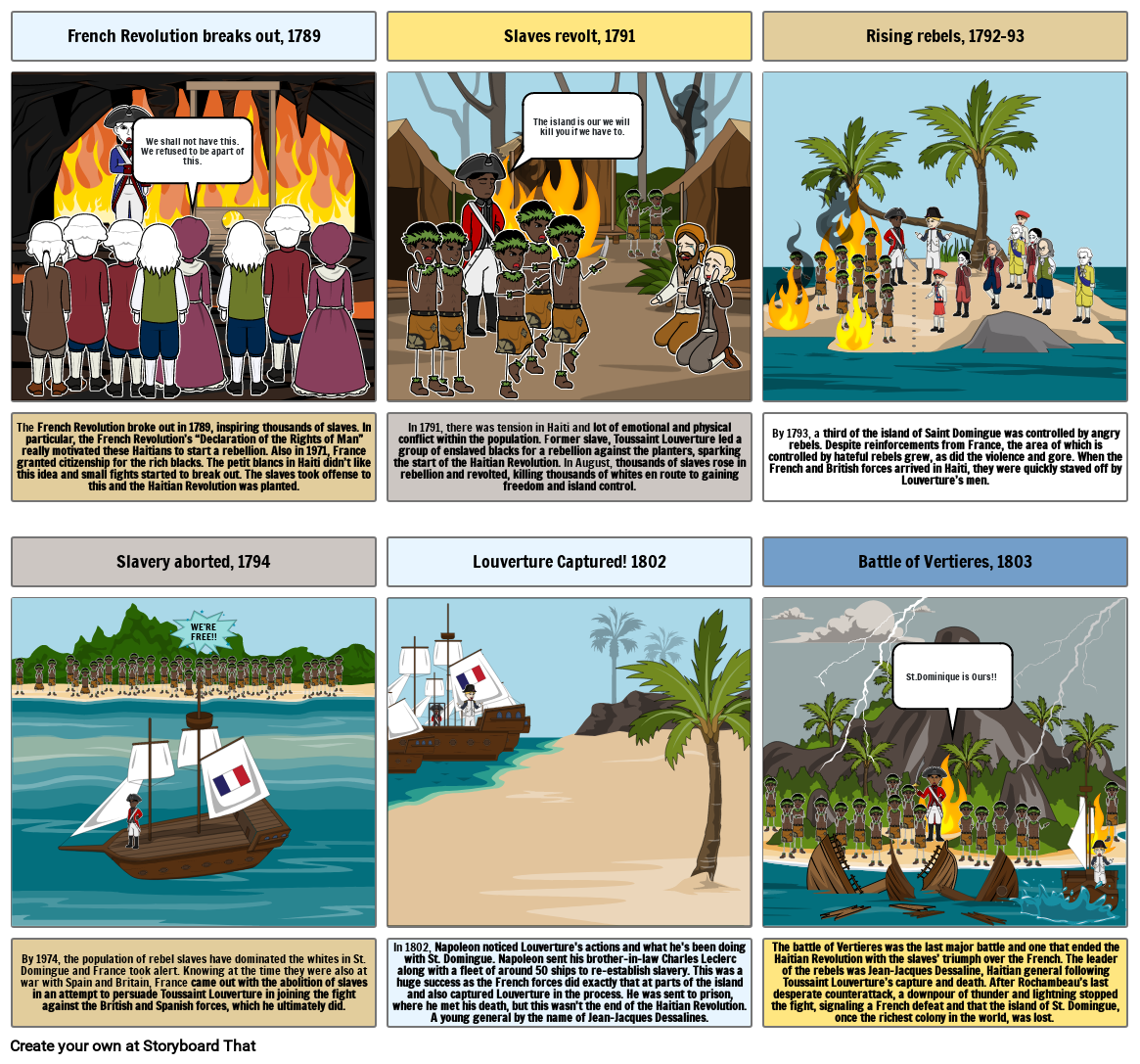Haitian revolution

Storyboard Text
- French Revolution breaks out, 1789
- We shall not have this. We refused to be apart of this.
- Slaves revolt, 1791
- The island is our we will kill you if we have to.
- Rising rebels, 1792-93
- The French Revolution broke out in 1789, inspiring thousands of slaves. In particular, the French Revolution’s “Declaration of the Rights of Man” really motivated these Haitians to start a rebellion. Also in 1971, France granted citizenship for the rich blacks. The petit blancs in Haiti didn’t like this idea and small fights started to break out. The slaves took offense to this and the Haitian Revolution was planted.
- Slavery aborted, 1794
- WE'RE FREE!!
- In 1791, there was tension in Haiti and lot of emotional and physical conflict within the population. Former slave, Toussaint Louverture led a group of enslaved blacks for a rebellion against the planters, sparking the start of the Haitian Revolution. In August, thousands of slaves rose in rebellion and revolted, killing thousands of whites en route to gaining freedom and island control.
- Louverture Captured! 1802
- By 1793, a third of the island of Saint Domingue was controlled by angry rebels. Despite reinforcements from France, the area of which is controlled by hateful rebels grew, as did the violence and gore. When the French and British forces arrived in Haiti, they were quickly staved off by Louverture’s men.
- Battle of Vertieres, 1803
- St.Dominique is Ours!!
- By 1974, the population of rebel slaves have dominated the whites in St. Domingue and France took alert. Knowing at the time they were also at war with Spain and Britain, France came out with the abolition of slaves in an attempt to persuade Toussaint Louverture in joining the fight against the British and Spanish forces, which he ultimately did.
- In 1802, Napoleon noticed Louverture's actions and what he's been doing with St. Domingue. Napoleon sent his brother-in-law Charles Leclerc along with a fleet of around 50 ships to re-establish slavery. This was a huge success as the French forces did exactly that at parts of the island and also captured Louverture in the process. He was sent to prison, where he met his death, but this wasn't the end of the Haitian Revolution. A young general by the name of Jean-Jacques Dessalines.
- The battle of Vertieres was the last major battle and one that ended the Haitian Revolution with the slaves’ triumph over the French. The leader of the rebels was Jean-Jacques Dessaline, Haitian general following Toussaint Louverture’s capture and death. After Rochambeau’s last desperate counterattack, a downpour of thunder and lightning stopped the fight, signaling a French defeat and that the island of St. Domingue, once the richest colony in the world, was lost.
Over 30 Million Storyboards Created
No Downloads, No Credit Card, and No Login Needed to Try!
